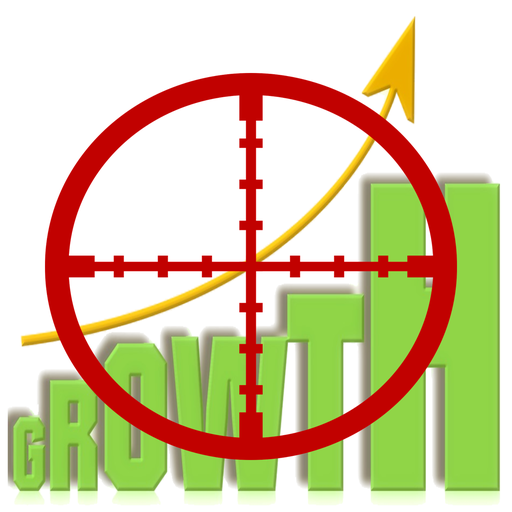Did you know 76% of companies see a positive ROI within a year of implementing marketing automation? In today’s fast-paced world, marketing automation doesn’t just save precious hours—it’s the powerful engine that elevates your lead generation, streamlines your marketing processes, and delivers a richer customer experience across every channel. Whether you’re a seasoned digital marketer or just starting out, the transformative power of marketing automation can help you run campaigns more efficiently and capitalize on every lead opportunity.
Read on to unlock surprising insights, best practices, and expert recommendations that will help you choose the best marketing automation tools and build effective marketing campaigns designed for growth.
Unlocking the Power of Marketing Automation: Surprising Insights That Will Change Your Campaigns
In the digital age, marketing automation is revolutionizing how businesses connect with customers. According to recent studies, businesses utilizing automation software witnessed a 53% higher conversion rate from lead generation campaigns compared to those relying solely on manual efforts. This game-changing technology streamlines marketing tasks that once took hours, enabling your marketing team to focus on innovative campaign strategies rather than repetitive tasks.
With marketing automation, companies can nurture leads throughout the customer journey , sending timely and personalized messages that boost engagement and sales. Rather than managing emails, social media, and ads across multiple channels manually, automation platforms coordinate these interactions, ensuring every lead and customer receives the right message at the perfect time. This cohesion increases marketing efficiency and empowers teams to deliver a consistent, high-quality customer experience that drives loyalty.
For example, imagine launching a digital marketing campaign that automatically segments leads, triggers personalized follow-ups, and dynamically adjusts messaging based on behavior. The result? A streamlined workflow yielding better results while freeing up resources for creative and strategic initiatives. As marketing automation continues to evolve, these surprising insights reveal why it’s no longer optional, but an essential component of modern marketing strategy.

How Marketing Automation Reshapes Modern Digital Marketing
Streamlining digital marketing processes with marketing automation: Automation software manages repetitive tasks like scheduling emails, posting to social media, and reporting—giving marketing teams more time for strategy and creativity. By removing manual bottlenecks, digital marketing campaigns move faster and with greater consistency.
Using automation software to drive growth: Automation tools help identify high-potential leads, nurture them with customized emails and offers, and automatically route them through your sales funnel. This boosts lead generation and maximizes every opportunity to convert prospects.
Enhancing customer experience and lifetime value: By delivering a personalized experience at every stage of the customer journey, marketing automation drives deeper loyalty and higher lifetime value. From welcome emails to targeted product suggestions, automation makes every customer interaction count.

Key Features of Leading Marketing Automation Software
Lead management and scoring for smarter targeting: Leading marketing automation tools assess, track, and score leads based on behaviors and engagement, empowering your team to focus their efforts on the highest-value opportunities. This leads to more effective marketing and increased sales productivity.
Automated email marketing campaigns: Easily create, schedule, and personalize emails to reach your audience at the right time. These tools automate drip campaigns, trigger emails based on actions, and perform A/B testing to optimize results.
Integration with CRM and other automation tools: The best marketing automation solutions work seamlessly with CRM systems and other platforms, ensuring marketing and sales data is unified for analytics and reporting. This eliminates data silos and delivers a 360-degree customer view.
Cross-channel automation for social media and digital ads: Automate your messages across different channels—social media, digital ads, SMS—to ensure unified experiences and maximize engagement during your marketing campaigns.
Benefits of Marketing Automation for Every Marketing Campaign
Marketing Automation Benefit |
Impact/ROI |
|---|---|
Lead Nurturing Capability |
Higher lead conversion and customer acquisition rates |
Personalization |
Improved customer experience, loyalty, and retention |
Faster Response Times |
Increased conversion revenue, faster sales cycles |
Analytics |
Actionable insights to optimize campaign performance |

Comparing Top Marketing Automation Tools for 2024
The Best Marketing Automation Tools According to Experts
HubSpot Marketing Automation: An all-in-one platform with strong CRM integration, robust workflow automation, and user-friendly analytics dashboard.
ActiveCampaign: Excellent for email marketing automation, customer segmentation, and personalized messaging across channels.
Pardot by Salesforce: Perfect for B2B businesses needing tight CRM and sales alignment, advanced lead management, and reporting capabilities.
Marketo Engage: Scalable enterprise solution with features for lead nurturing, cross-channel automation, and predictive analytics.
Mailchimp Automation: Widely used for small businesses, offering flexible email marketing automation tools, simple integration, and competitive pricing.

Getting Started: Building Your First Automated Marketing Campaign
Setting campaign goals and KPIs: Define what success looks like for your marketing strategy—whether it’s lead generation, nurturing, or sales conversions. Clear KPIs guide your team and help you measure the impact of automation tools.
Mapping the customer journey for automation: Identify all touchpoints and interactions your prospects have with your brand. Visualizing the customer journey allows you to automate timely and relevant messaging throughout the marketing process.
Choosing the right automation solution: Consider ease of use, feature set, integration with your CRM, and pricing. Choose an automation software that fits your business size, campaign complexity, and future growth plans.
Launching and monitoring automated workflows: Set up workflows, such as triggered emails, lead scoring, and follow-up tasks. Regularly analyze performance and make optimizations for effective marketing results.

Integrating CRM and Marketing Automation for Seamless Customer Experience
The seamless interplay between your CRM and marketing automation solution is the backbone of a high-performing digital marketing strategy. When these platforms work together, your marketing and sales teams gain access to unified customer data , enabling better decision-making and more targeted messaging. Each lead’s behavior, preferences, and stage in the customer journey are visible in real-time, making follow-ups feel personal and meaningful.
Integration boosts lead nurturing by automatically triggering workflows based on CRM updates—such as sending a personalized email after a sales call, or adjusting scoring as a prospect moves through the funnel. It also helps marketing teams avoid duplicated efforts, ensuring everyone works from the same data and insights. The result is an improved customer experience that drives conversion and lifetime value.
For businesses serious about scaling their marketing campaigns , integrating CRM and automation platforms ensures you never miss a touchpoint or opportunity. Harnessing the synergy of these systems delivers both operational efficiency and deeper engagement throughout the customer journey.
Optimizing Every Customer Journey Stage with Automation Platforms
Leveraging automation software integration for end-to-end marketing: Connect touchpoints from awareness to retention, automating communications in a way that feels seamless and tailored to each lead.
Enhancing lead nurturing and segmentation capabilities: Automatically segment your audience based on behavior, demographics, and interaction history, delivering content that resonates at each stage.
Unifying sales and marketing data for deeper insights: Shared customer data empowers teams to identify trends, measure ROI, and refine the marketing process for continuous improvement.

Automation Tools that Maximize Social Media and Email Marketing Efficiency
Marketing automation tools empower teams to amplify their efforts across social media and email marketing platforms, boosting both reach and efficiency. With advanced scheduling features, marketers can plan, manage, and distribute content across multiple channels well in advance, keeping branding consistent and messaging timely—even across different time zones.
For email marketing , automation means creating dynamic sequences that nurture leads automatically—delivering the right information at every step, without manually sending each email. Triggers, such as a site visit or a cart abandonment, can start personalized workflows. For social media management, automation platforms enable you to analyze engagement, test content variations, and optimize posting schedules for maximum impact.
These automation tools not only remove repetitive tasks from your marketing process but also provide actionable data to improve future campaigns. Real-time analytics, AB testing, and segmentation ensure that each channel operates at its highest effectiveness, producing results that directly affect sales and brand loyalty.
Harnessing Marketing Automation Platform Features for Social Media Campaigns
Scheduling social media posts across channels: Set up content calendars in advance and deploy posts automatically on Facebook, Twitter, LinkedIn, Instagram, and more.
Automated AB testing and analysis: Compare different headlines, images, and timings to discover what resonates best with your audience.
Personalized multi-channel messaging: Tailor content to individual user segments across email, SMS, and social networks for maximum response.

Strategies for Effective Marketing Automation Implementation
Aligning automation tools with your marketing strategy: Successful adoption starts by defining your business goals and choosing automation solutions that support those objectives. Ensure every automated workflow enhances your overall marketing plan.
Selecting the best-fit marketing automation software: Evaluate platforms on features, support, integrations, scalability, and user experience. The right tool will grow with your business, adapt to changing needs, and integrate smoothly with your existing tech stack.
Prioritizing customer-centric automation: Focus automation around delivering value and personalized experience to each customer. Strike a balance between efficiency and authentic engagement by using data-driven insights to inform every campaign.

Common Pitfalls in Marketing Automation (And How to Avoid Them)
Over-automation and loss of personalization: When automation replaces all human touchpoints, your marketing can feel generic and robotic. To avoid this, personalize key messages and keep real conversations as part of your marketing process.
Neglecting ongoing monitoring and optimization: Simply setting up automation isn’t enough. Regularly review KPIs, analyze performance, and adjust workflows to ensure you’re getting the most from your automation tools.
Failing to integrate automation tools with other platforms: Disconnected systems create data silos and reduce the effectiveness of your automation strategy. Choose solutions with strong integration capabilities and always keep your technology stack connected.

What Is Marketing Automation? (People Also Ask)
Marketing automation is the use of automation software to streamline and automate repetitive marketing tasks, such as sending emails, nurturing leads, managing social media posts, and tracking campaigns. The goal is to save time, reduce errors, and deliver a more tailored, effective marketing strategy. By leveraging marketing automation tools, businesses can enhance workflow efficiency and reach the right audience at key points in the customer journey.
What is CRM and marketing automation? (People Also Ask)
CRM stands for Customer Relationship Management—software designed to manage customer data, interactions, and sales processes. When integrated with a marketing automation platform , CRM and marketing automation together create a unified system for managing leads, nurturing relationships, and measuring campaign effectiveness. This synergy bridges marketing and sales, personalizing the customer experience and improving operational efficiency.
Which marketing automation tool is best? (People Also Ask)
The best marketing automation tool depends on your business size, goals, and specific needs. For most small-to-midsize businesses, HubSpot and Mailchimp offer user-friendly features and affordable pricing. Larger enterprises often benefit from advanced solutions like Marketo Engage and Pardot for comprehensive workflow automation, analytics, and CRM integration. It's crucial to consider scalability and support when making your selection.
Is marketing automation an AI? (People Also Ask)
While marketing automation and AI are related, they’re not the same. Marketing automation handles workflows and repetitive tasks using rule-based logic, whereas artificial intelligence leverages machine learning to analyze data, predict outcomes, and generate insights. Many leading marketing automation platforms now integrate AI features, but core automation remains rule-driven rather than fully AI-powered.
Expert Insights: Why Marketing Automation is Essential for Growth
“Marketing automation is the engine that empowers modern businesses to make every customer interaction meaningful, efficient, and profitable.” – Industry Expert

Final Steps to Begin Your Marketing Automation Journey
Identify your marketing automation goals
Select the most suitable automation software
Train your team for platform adoption
Monitor, optimize, and scale your campaigns
Frequently Asked Questions about Marketing Automation
What types of marketing can marketing automation handle?
Marketing automation can manage email campaigns, social media posting, digital advertising, SMS outreach, lead scoring, and even web personalization. It streamlines numerous digital marketing channels to provide consistent, effective communication.How does marketing automation improve lead nurturing?
It enables automated, timely follow-ups based on lead behavior, scoring, and segmentation. Personalized messages, drip campaigns, and dynamic content ensure prospects receive the right information at every stage, greatly improving conversion rates.Do I need special technical skills to use marketing automation tools?
Most modern marketing automation tools are designed for user-friendliness, with drag-and-drop workflow builders and comprehensive tutorials. While technical skills can enhance customization, they’re not strictly required for most day-to-day tasks.What’s the difference between automation tools and automation platforms?
An automation tool typically focuses on a single function, like email or social scheduling, while an automation platform provides a suite of integrated solutions across multiple marketing channels—including CRM, analytics, and advanced workflow management.
Recap: Key Takeaways to Make Marketing Automation Work for You
Marketing automation boosts leads, sales, and efficiency
Top automation platforms offer advanced features for every business
Integration with CRM enhances the customer journey
Avoid over-automation to maintain a personal touch
Start small, optimize continuously, and scale strategically
Watch: How to Build a Successful Marketing Automation Campaign (Video Guide)
Video tutorial on creating and optimizing a marketing automation campaign from setup to launch, including strategy, automation workflow demos, and reporting breakdown.
Action Step:
Struggling to make All of your Marketing Strategies Work Together Seamlessly and Effortlessly? Omni-Channel, Cross-Channel, Behavioral Targeting, Build your Cross-Channel Srategy with and Around Content to Attract Customers. Click the Link and Get our Ultimate Guide for Building a Content Marketing Strategy for Small Business.
Sources
Salesforce – https://www.salesforce.com/products/marketing-cloud/marketing-automation/
Mailchimp – https://mailchimp.com/features/marketing-automation/
Marketo – https://www.marketo.com/software/marketing-automation/
ActiveCampaign – https://www.activecampaign.com/marketing-automation
Gartner – https://www.gartner.com/en/marketing/insights/marketing-automation
Marketing automation is a transformative tool that streamlines marketing processes, enhances lead generation, and delivers personalized customer experiences. For instance, platforms like HubSpot offer AI-powered workflows and intelligent chatbots to automate tasks, allowing marketing teams to focus on strategy and creativity. ( hubspot.com ) Similarly, Zoho Marketing Automation provides multichannel solutions designed to generate sales-ready leads through strategic automation. ( zoho.com ) By leveraging these tools, businesses can efficiently manage campaigns, nurture leads, and achieve a higher return on investment.
 Add Row
Add Row  Add
Add 




Write A Comment